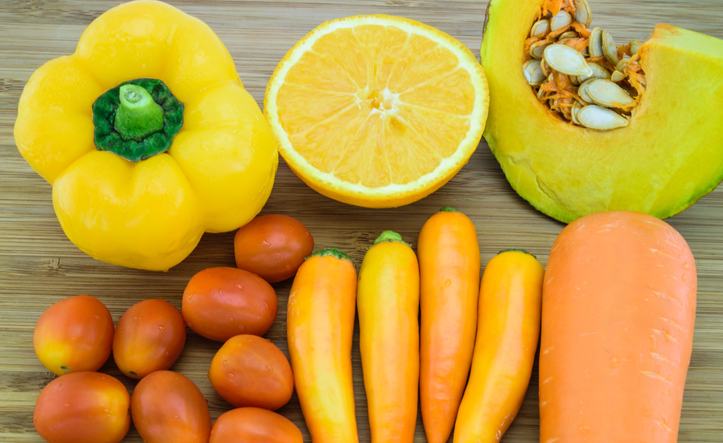Beta-carotene intake linked with lower risk of type II diabetes – systematic review and meta-analysis

Beta-carotene is a type of carotenoids and can be obtained from most fruits and vegetables.
The study, conducted by researchers from China, was said to be the first meta-analysis that assesses the relationship between carotenoids and T2D. Findings were published on Advances in Nutrition.
The dietary intake of six types of carotenoids and its link to T2D risk was assessed in this study.
The six carotenoids studied were alpha-carotene, beta-carotene, beta-cryptoxanthin, lycopene, lutein, and zeaxanthin and they represent about 90 per cent of the total carotenoids in the human diet and circulation system.
Carotenoids are also known to be natural antioxidants that reduce oxidative stress – a factor of chronic disease.
Aside from beta-carotene, total carotenoid and lutein/zeaxanthin are also linked to a lower risk of T2D, said the researchers.
For this meta-analysis, they searched through related studies on PubMed and Ovid Embase published as of July 2020.
Thirteen relevant publications were included in this meta-analysis, with seven conducted in Europe, five from the US, and only one from Asia, specifically Japan.
All the studies were prospective studies, with a follow-up duration of 4.8 to 27 years.
They then measured whether the dietary intake and the amounts of carotenoids circulating in the body could reduce the risk of T2D.
Out of the six carotenoids, dietary intake of beta-carotene was linked to a lower risk of T2D as seen in six studies.
This was also seen in two studies involving total carotenoids, four studies involving alpha-carotene, and four studies involving lutein/zeaxanthin.
No significant association was seen for beta-cryptoxanthin and lycopene.
Body circulation Vs dietary intake
At the same time, the researchers also found that for certain carotenoids, while a higher dietary intake will not lower the risk of T2D, the circulating concentration of the carotenoids was found to reduce the risk of T2D.
This was seen in the case of lycopene, where there was an inverse association between the circulating concentrations of lycopene and T2D risk, although there was no significant association between the dietary intakes of lycopene and T2D risk.
This inconsistency could be due to various reasons.
The researchers pointed out that circulating concentrations reflect “many more factors that reflect factors influence bioavailability of carotenoids”, such as food processing, lipid co-consumption, interactions with smoking or alcohol consumption.
Thus, they said that “blood concentrations may better reflect the carotenoids that directly participated in human physiological processes and metabolism in the circulation.”
“Previous studies have found that the correlations between dietary and circulating concentrations for different carotenoids varied across studies,” they added.
Based on this study, the carotenoids which showed a lower risk of T2D when there is high dietary intake and circulating concentration is beta-carotene, total carotenoids and lutein.
Possible mechanism
The antioxidant capacity of carotenoids is said to be a possible reason for its link with lower T2D risk.
“Previous mechanism studies have indicated that oxidative stress could lead to insulin resistance and apoptosis of pancreatic beta cells through the NF-kB pathway and various protein kinase pathways,” the researchers said.
Metabolic health will take centre stage at our Growth Asia Interactive Broadcast Series. Find out more and register for free here.
Source: Advances in Nutrition
Dietary Intake and Circulating Concentrations of Carotenoids and Risk of Type 2 Diabetes: A Dose-Response Meta-Analysis of Prospective Observational Studies
https://doi.org/10.1093/advances/nmab048
Authors: Yi-Wen Jiang, Zhong-Han Sun, Wen-Wei Tong, Kun yang, Kun-Quan Guo, Gang Liu, An Pan



















